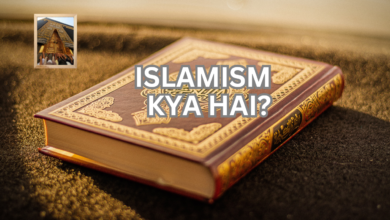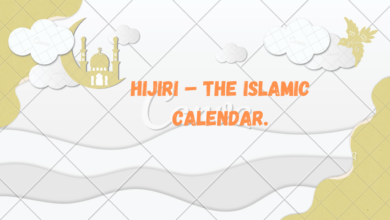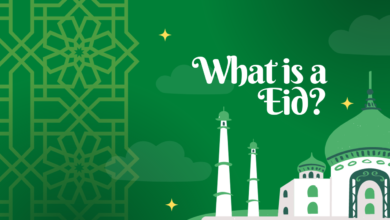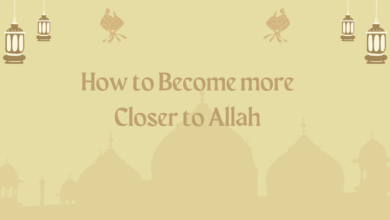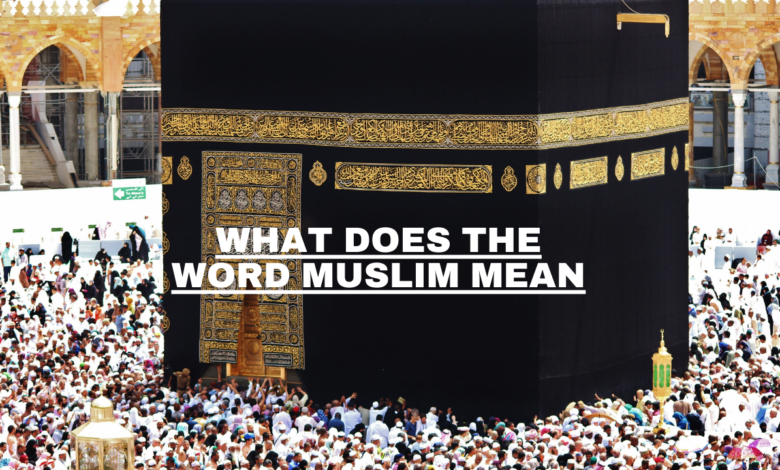
What does the Word Muslim Mean?
The word “Muslim” is derived from Arabic and means “one who submits to God” or “one who is in a state of peace through submission.” It is the term used to describe individuals who follow the faith of Islam.

Introduction
The word “Muslim” is a term that holds profound significance in the world, especially in the context of religion and culture. It represents a diverse and dynamic group of people who follow the faith of Islam. However, the meaning of the word “Muslim” extends beyond religious connotations and encompasses a rich tapestry of history, culture, and identity.
Origins of the Word “Muslim”
The word “Muslim” originates from the Arabic language, which is the language of the Quran, the holy book of Islam. The word is derived from the Arabic root “S-L-M,” which conveys the idea of peace, submission, and surrender. Thus, “Muslim” can be translated to mean “one who submits to God” or “one who is in a state of peace through submission.”
Also check.
- What does Muslims Believe in?
- What does Islam Say about Abortion?
- Which types of Relations are Haram in Islam?
- What is Jesus Real Name?
- What is the Holy Book of Islam?
Religious Significance
At its core, the word “Muslim” is a religious identifier, denoting individuals who adhere to the faith of Islam. Muslims believe in the oneness of God (Allah), the prophethood of Muhammad, and the Quran as the final and unaltered revelation from God. They follow the Five Pillars of Islam, which include the declaration of faith (Shahada), prayer (Salat), fasting during Ramadan (Sawm), almsgiving (Zakat), and the pilgrimage to Mecca (Hajj). Islam is not just a religion but also a way of life for Muslims, guiding them in matters of faith, ethics, and social conduct.
Diversity Among Muslims
It is essential to understand that Muslims are not a monolithic group. Islam is a diverse religion with over a billion adherents around the world. Muslims come from various cultural, ethnic, and linguistic backgrounds, resulting in a rich tapestry of traditions, customs, and practices. This diversity is reflected in the different sects within Islam, such as Sunni and Shia, as well as variations in Islamic jurisprudence and cultural expressions of faith.
Geographical Distribution
Muslims can be found in every corner of the globe, making Islam one of the world’s major religions. The geographical distribution of Muslims is widespread, with significant populations in regions like the Middle East, North Africa, South Asia, Southeast Asia, Europe, and North America. The presence of Islam has shaped the cultural and social landscape in these areas, contributing to the multicultural fabric of the world.
Cultural and Historical Significance
Beyond its religious connotations, the term “Muslim” carries cultural and historical significance. Islamic civilization has made remarkable contributions to human knowledge, including advancements in mathematics, astronomy, medicine, architecture, and more. Muslim scholars preserved and translated the works of the ancient Greeks, Romans, and other civilizations, which played a crucial role in the development of the Renaissance in Europe. Islamic art, calligraphy, and architecture have also left an indelible mark on the world’s cultural heritage.
Identity and Self-Expression
For many Muslims, identifying as “Muslim” is not just a religious label; it is an integral part of their identity. It encompasses their beliefs, values, and principles. Additionally, it serves as a source of pride and solidarity among Muslims worldwide. In recent years, the word “Muslim” has been embraced as a symbol of unity, particularly in the face of challenges and misunderstandings that have arisen in a post-9/11 world.
Conclusion
The word “Muslim” is multifaceted, encompassing religious, cultural, and historical dimensions. It signifies adherence to the faith of Islam and a way of life based on the teachings of the Quran. It is also a reminder of the rich diversity within the Muslim community and its global presence. Beyond these aspects, “Muslim” is a symbol of identity and self-expression for individuals who proudly embrace the faith and the values it represents. Understanding the meaning of the word “Muslim” goes beyond the surface, requiring an appreciation of its historical and cultural depth.

FAQs
What does the word “Muslim” mean?
The word “Muslim” is derived from Arabic and means “one who submits to God” or “one who is in a state of peace through submission.” It is the term used to describe individuals who follow the faith of Islam.
Is “Muslim” a religious or cultural identifier?
“Muslim” primarily serves as a religious identifier, signifying adherence to the faith of Islam. However, it also carries cultural and historical significance, as Muslims come from diverse backgrounds with various traditions and practices.
What are the core beliefs of Muslims?
Muslims believe in the oneness of God (Allah), the prophethood of Muhammad, and the Quran as the final and unaltered revelation from God. They follow the Five Pillars of Islam, including the declaration of faith, prayer, fasting during Ramadan, almsgiving, and the pilgrimage to Mecca.
Are all Muslims the same in terms of beliefs and practices?
No, Muslims are not a monolithic group. Islam is a diverse religion, and there are variations in beliefs and practices among different sects (e.g., Sunni and Shia) and cultural expressions of faith based on regions and traditions.
Where can Muslims be found around the world?
Muslims are present in virtually every part of the world. The largest Muslim populations are in the Middle East, North Africa, South Asia, Southeast Asia, Europe, and North America.
What is the cultural and historical significance of the word “Muslim”?
Beyond religion, “Muslim” represents a rich cultural heritage. Islamic civilization has made substantial contributions to science, art, and architecture, leaving an indelible mark on human history.
Is “Muslim” more than just a religious label?
Yes, for many Muslims, identifying as “Muslim” is integral to their identity. It signifies their beliefs, values, and principles, and serves as a source of pride and unity.
How has the meaning and perception of the word “Muslim” evolved over time?
The word “Muslim” has faced evolving perceptions, particularly in the post-9/11 world, where misunderstandings and challenges have led to increased efforts by Muslims to foster understanding and counter stereotypes.
What role does the Quran play in defining the word “Muslim”?
The Quran is the holy book of Islam, and it plays a central role in defining a Muslim’s faith and way of life. Muslims believe it to be the final and unaltered revelation from God, guiding their actions and beliefs.
Is it acceptable to refer to someone as a “Muslim” in everyday conversations?
Yes, referring to someone as a “Muslim” is generally acceptable in everyday conversations, provided it is done respectfully and without prejudice. It’s essential to recognize the diversity within the Muslim community and respect individual beliefs and practices.
